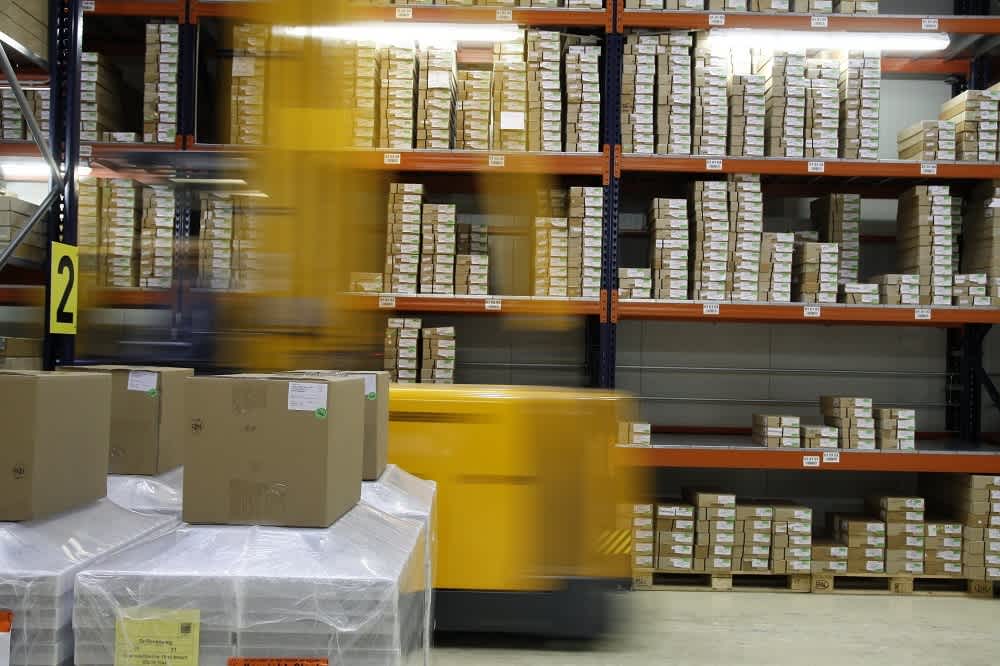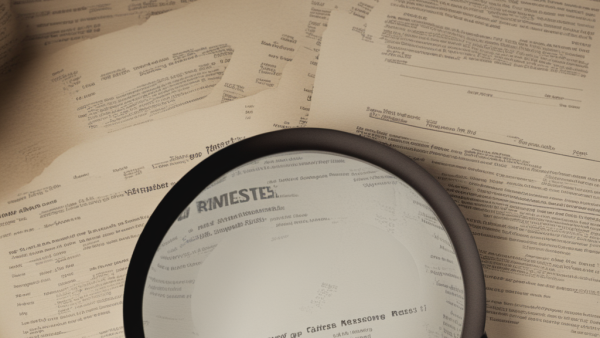
by Sam Franklin | June 02, 2022 | 9 min read
A brief guide to choosing a third-party logistics provider for your small business
Get fundedLast updated: September 27, 2022
As small businesses sell more products online, their order fulfilment operations and supply chain become difficult to manage. At this crucial juncture, they must entrust their logistics operations to a reliable 3PL partner who handles everything from packing to returns management and add-on services such as gift notes, two-day shipping, and so on. You can read our comprehensive 3PL guide to learn more about 3PLs and how they benefit e-commerce companies.
A company cannot become complacent just by producing a decent product. After all, a buyer’s journey has various aspects, an important facet being prompt and secure product delivery. The delivery experience of a product can make or break your customer service, supply chain, and repeat purchase rate.
According to Metapack’s research, a positive delivery experience influences 61% of buyers to buy from the same eCommerce retailer again.
It’s only reasonable for a corporation to conduct due diligence before entrusting a critical portion of its operations to a logistics provider.
This article will look at what to consider when selecting a third-party logistics provider for a small business.
Table of contents
- Things to keep in mind when choosing a third-party logistics partner
- How to get the most out of a partnership with your 3PL provider?
Things to keep in mind when choosing a third-party logistics partner
With so many third-party logistics providers in the marketplace, how do you know who is right for your business? While a 3PL provider’s performance can be evaluated after working with them for a few months, switching from one third-party logistics provider to another is difficult. Most transitioning businesses experience a period of chaos during which their order fulfilment suffers significantly, leaving behind a trail of unhappy and dissatisfied customers. The migration does not just hurt the supply chain but also the future business.
We have compiled a list of factors to keep in mind when you choose a long-term logistics partner:
1. Choose a third-party logistics provider with a good reputation and proven track record
Instead of hiring a third-party logistics partner only to discover that they are unprofessional and lacking, it is best to assess the company’s market standing. You could start the due diligence by looking at the company’s website to see if they have a credible list of satisfied customers.
Prices are another consideration. Are their prices significantly lower than the market average? Low prices may appear appealing at first, but doing business with a company that does not deliver on its promises and harms your company’s reputation is pointless.
There are a number of third-party websites where people can leave reviews for vendors whose services they have used. You should avoid a logistics company that has a lot of negative reviews
When making the final decision, you should choose a company known for its service excellence, financial stability, and quality management.
Allow room for supply chain scalability
Most reputable third-party logistics companies offer various services and order fulfilment options. As a small business owner on the cusp of growth, you may require essential supply chain services such as storing, picking, packing, and returning. However, you should select a 3PL provider with an extensive portfolio of services that you can tap into when the time comes. For example, you may not require international shipping in the first two years of operation, but you may wish to do so later.
2. Look for customisation as a service
Before you sign on the dotted line, determine the customisation capabilities of your prospective logistics provider. They will provide you with insights and business intelligence so that you continuously improve your processes with their help. A strong 3PL supplier, for example, would find ways to enable inventory optimisation. They would tailor solutions to your operations, allowing you to give a faultless customer experience while keeping your inventory costs under control.
3. Are they responsive?
A good 3PL partner will promptly respond to your complaints, requirements, and feedback and interact with you regularly. They would understand and match the level of service you wish to provide to your customers and prioritise customer service.
Furthermore, a 3PL partner should be able to engage directly with customers while retaining the level of professionalism you expect to deliver to your clients. Because they represent you throughout the customer interaction, your 3PL partner should provide a favourable brand experience for your customers.
4. Examine tech compatibility
From inventory management to order management systems, most eCommerce businesses utilise a range of software. The 3PL you hire must use technology that works with your existing applications. Your inventory systems should be synchronised to ensure that orders are processed correctly and delivered on time.
5. Shortlist third-party logistics providers with omnichannel expertise
Choosing a 3PL partner with the experience to handle all sales channels and logistics requirements is always a good idea. They should have a firm grasp of omnichannel eCommerce to provide an exceptional customer experience. It would be helpful if your logistics partner has, in the past, worked with businesses comparable to yours to replicate proven processes.
6. Location is the key
Logistic partners work with a network of distribution centres and warehouses. Their network must be close to shipping hubs, highways, and your customers, as this will help you cut back last-mile delivery costs. You need to find out their distribution centre locations to verify if the provider will be able to serve your customers well.
7. Prioritise data and resource security
Every few days, news of data breaches hits the front pages. Hackers have penetrated even the most powerful corporations. Third-party logistics providers have access to a great deal of sensitive client data, including names, email addresses, and home addresses.
Working with a 3PL that has sufficient data security elements in place, such as regular software upgrades, good malware, regular audits, and patch installation, is critical. You should also inquire about who from the vendor company has access to your client's data and whether they have a plan in place in the event of a breach.
A 3PL supplier that shows little to no concern about privacy and security should not be considered.
8. Choose partners who Innovate
In today’s competitive climate, where everything is faster, cheaper, and more efficient, it’s critical to work with a 3PL provider that regularly employs technology to improve the supply chain. Whether it’s a new and enhanced fleet tracking system, a new style of inventory management or devising an intricate plan to thrill your customers with a fun innovation, your logistics provider should be continually innovating. Their efforts at finding new solutions will improve your processes and better your customer’s experience.
9. Are they a cultural fit?
A 3PL provider handles a crucial aspect of your company’s operations. It is more often than not a representative of your firm whether they are dealing with customer escalations or simply carrying out their fulfilment services. As a result, it’s critical that you share similar values and ethics.
You should ask yourself the following questions:
Is our 3PL partner as customer-centric as we are?
Does our logistics partner have a track record of exceeding client expectations?
Do they share our corporate vision of continuous improvement, growth, and scaling up?
How to get the most out of a partnership with your 3PL provider?
Hiring a third-party logistics supplier is a significant expenditure. You will be able to get the most out of this strategic investment if you follow these steps.
1. Evaluate their portfolio and offerings
You need to get an accurate idea of the various offerings of your logistics provider to get the best out of your strategic partnership. You could quiz them on their processes to know what would work for your business:
What innovations have they done for businesses similar to yours?
Can they add gift-wrapping to the process?
Can they offer same day or next day deliveries?
How do they manage the surge in orders during festive seasons?
2. Get clarity on costs
A small business cannot let delivery costs disturb its cash flow. Ask the logistics provider to share a list of prices upfront to avoid unpleasant surprises later. You must remember that sometimes add-ons can drain your cash flow , so negotiate costs and iron out details for non-core processes like gift-wrapping, personalised messages, etc.
3. Establish reporting and communication guidelines
While 3PL providers help relieve a big part of the logistics nightmare, you still need to keep track of delivery, damages, and fulfilled orders. You should give the logistics partner specific guidelines for delivering you information on activities such as new orders, refunds, inventory counts, and so on.
To keep an eye on how your logistics partner performs, you must stay watchful and track consumer complaints on social media and other customer care channels.
4. Establish a service-level agreement
The service-level agreement (SLA) should include any guarantee or assurance the provider offers during negotiations. You should work out the most minor details for every emergency or crisis that may arise during order fulfilment and delivery. For example, how will the provider pay you if a product is damaged?
To verify that the provider will follow through on these promises, you should ask them some tough questions regarding their financial health in recent years and request client referrals.
5. Verify technical compatibility for correct order processing and inventory management
Most companies have warehouse management systems, order processing systems, and other costly software. When choosing a third-party logistics partner, you should conduct a technical audit to ensure that the provider's software is compatible with your current system. Order processing and inventory management become easier and more accurate when systems are synchronised.
Conclusion
As a small business owner, outsourcing logistics operations will finally give you the time and peace of mind to focus on core business issues and challenges. Therefore, you must put your faith in a 3PL provider competent to handle important facets of your business.
You may be tempted to go with the cheapest supplier, but you must resist this temptation. Such low-cost 3PL providers may have hidden costs or a bad reputation for failing to meet professional business standards.
Before getting into a partnership with a 3PL supplier, you should iron out every minor detail of their operations and put it in writing in an SLA.
Your 3PL partner will not only ship your orders but will also represent your company in customer-facing interactions. You must do your homework and pick a reputable and capable logistics partner who will uphold your organisation’s values and vision.
Written by

Sam founded his first startup back in 2010 and has since been building startups in the Content Marketing, SEO, eCommerce and SaaS verticals. Sam is a generalist with deep knowledge of lead generation and scaling acquisition and sales.


